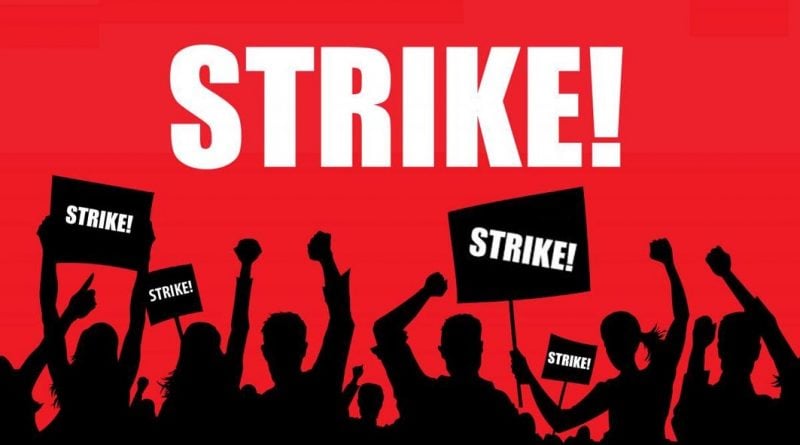The Civil and Local Government Staff Association of Ghana (CLOGSAG) embarked on a nationwide strike on February 20, 2025, to protest the appointment of Mr. Samuel Adom Botchwey as the registrar of the Births and Deaths Registry. The union contended that Mr. Botchwey’s appointment was politically motivated, citing his affiliation with the National Democratic Congress (NDC) and lack of civil service experience as disqualifying factors. Despite the national strike action, some CLOGSAG members employed by the Tema Metropolitan Assembly (TMA) continued to work. These individuals, representing departments such as human resources, secretarial services, information services, and environmental health, claimed they hadn’t received official notification of the strike and were hesitant to rely solely on media reports. They indicated prior knowledge of a potential strike that was subsequently cancelled and emphasized the need for formal communication from the union regarding any new developments. This localized discrepancy highlighted a potential communication gap within the union’s ranks, impacting the strike’s overall effectiveness at the TMA.
CLOGSAG’s primary grievance centered on the perceived politicization of the Births and Deaths Registry through Mr. Botchwey’s appointment. They argued that such a sensitive position, responsible for vital record-keeping, demanded an impartial civil servant with proven experience, not a political appointee potentially influenced by partisan interests. The union’s insistence on Mr. Botchwey’s removal underscored their commitment to safeguarding the integrity and neutrality of the registry. Their decision to strike aimed to pressure President John Dramani Mahama to revoke the appointment and address their concerns about the politicization of civil service roles. The strike action disrupted services nationwide, impacting the registration of births and deaths, and brought to light larger concerns about political influence within the civil service.
The government responded to the strike by appealing to CLOGSAG to reconsider their position and return to work. However, the union remained steadfast in their demands, refusing to call off the strike until Mr. Botchwey’s appointment was rescinded. This impasse highlighted the deep divide between the government and the union, with CLOGSAG prioritizing the preservation of civil service neutrality over immediate service resumption. The government’s appeals, while emphasizing the importance of continued service delivery, failed to address the core issue raised by CLOGSAG, leading to the prolonged strike action.
The situation at the TMA, where some CLOGSAG members continued to work despite the national strike, revealed a potential weakness in the union’s internal communication. The workers’ explanation that they hadn’t received official notification highlights the importance of clear and timely communication within large organizations, especially during critical events like strikes. The lack of official communication created confusion and potentially undermined the strike’s impact at the local level. While these TMA employees expressed a willingness to participate in the strike, their hesitation stemmed from a lack of formal instruction from the union, demonstrating the importance of effective communication strategies during labor actions.
The CLOGSAG strike brought to the forefront the tension between political appointments and the principle of a neutral civil service. The union’s actions, while disruptive, underscored the importance of preserving the integrity of critical institutions like the Births and Deaths Registry. Their refusal to back down until their demands were met demonstrated their commitment to this principle, even in the face of government pressure. The strike’s impact extended beyond the immediate issue of Mr. Botchwey’s appointment, prompting a broader discussion about the potential consequences of political interference within the civil service.
This incident serves as a case study in the dynamics of labor relations, the challenges of internal communication within unions, and the ongoing debate about the balance between political expediency and the preservation of a non-partisan civil service. The TMA situation highlighted the critical role of effective communication in ensuring a united front during labor actions. Furthermore, the strike’s duration and the government’s response underscored the complexities of resolving disputes when fundamental principles like civil service neutrality are at stake. The CLOGSAG strike ultimately forced a national conversation about the importance of safeguarding the integrity of public institutions against undue political influence.


